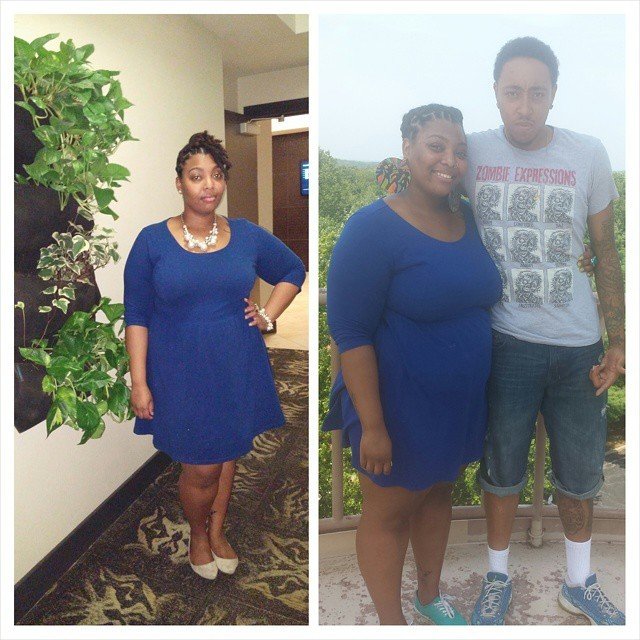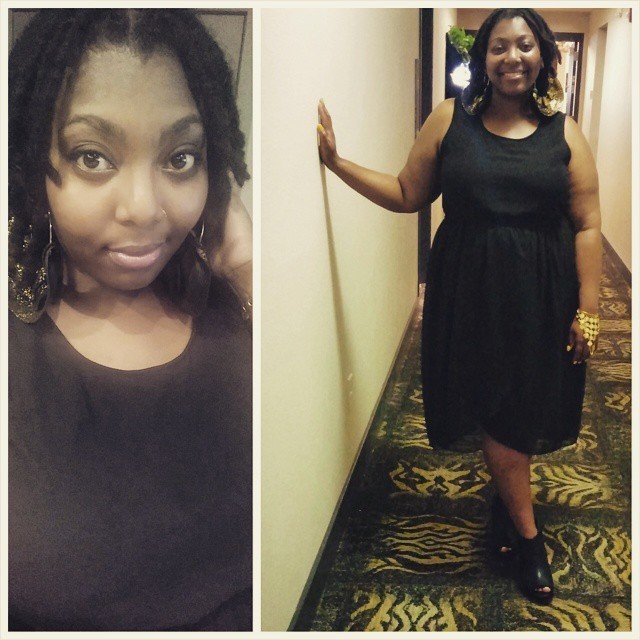Oprah Winfrey made news recently when she announced she's lost 40 pounds through Weight Watchers. The entertainment mogul has lost weight in the past, but Winfrey is claiming in a new Weight Watchers advertisement that the dieting program is the sole reason for her success.
"Since I started Weight Watchers, I've lost over 40 pounds," she said. "I can honestly tell you, I struggle no more."
The commercial shows the 62-year-old hanging with friends, gardening, and praising Weight Watchers for letting her eat tacos, pasta, and bread while still losing weight.
"I would say to anybody who's thinking about joining Weight Watchers, take the leap and get about the business of enjoying a fantastic and full life."
Winfrey looks amazing and seems to be embracing her smaller size, but she's also championing Weight Watchers for monetary compensation.

She bought 10% stock in Weight Watchers in October 2015. With her latest commercial, Winfrey singlehandedly raised the company's stock 17%, according to CNN Money.
Yet, she claims that the easiness of the program is the true reason she's singing Weight Watchers' praises.
"Weight Watchers is easier than any other program I've ever been on,” she said in a press release obtained by People. "It's a lifestyle, a way of eating and a way of living that's so freeing. You never feel like you are on a diet and it works."
It's the "you never feel like you are on a diet" statement that raised my eyebrows.

It's simply untrue. Weight Watchers encourages lifestyle changes through dieting — and it wasn't mindless work for most women, including me.
I joined Weight Watchers in 2013 after I ballooned to 300 pounds. Poor eating habits combined with depression and graduate school-related isolation led to a 50-pound weight gain in less than eight months. I ate excessively as I studied, wrote my thesis, and taught undergraduate classes. Pummeling through multiple plates of food helped me suppress the depression I'd slowly begun to sink into.
One afternoon in August, a mere three weeks after school began, I realized my favorite pair of jeans no longer fit. I immediately pulled out the scale I'd buried at the bottom of a storage container. The "305" number blared at me as I looked down at my weight.
I joined Weight Watchers that night.
My mom had lost a significant amount of weight on the program, so I figured I could replicate her success.

I did. I lost 30 pounds over the course of four months, thanks to Weight Watchers' point system. Weight Watchers assigns points to dieters based on their height, weight, and individual goals. Those points correspond to foods as well. Each food item has a different point value.
Weight Watchers sells its own snacks, food, and recipe books to assist customers. They also have weekly weigh-in meetings to keeps dieters accountable to their goals. I quickly fit back into those jeans I love, thanks to Weight Watchers, a daily intake of 80 ounces of water, and a personal trainer.
However, Weight Watchers also had an unintended impact: I became obsessed with food and dieting.
I dreaded Weight Watchers meetings. I always made sure I wore as few clothes as possible, drowned myself with water so I could urinate more throughout the day, and ate as little as possible.

Weighing less than I did the week before became an obsessive game for me. I tried to eat as little as possible without starving. I worked out harder to burn more calories. I avoided heavier foods, like pastas and sandwiches, as I neared a weigh-in day.
While Weight Watchers prides itself on blending seamlessly into any dieter's life, it doesn't account for the ways that we have to reshape our lives to consider the program. I planned my days around points. Could I eat at a restaurant without going over my points? Would I extinguish my points by having a slice of cake and a sandwich within the same day?
I began seeing a therapist for depression about six months into the program. Many of my early sessions were spent lamenting about depression and shame. I felt shame each time I hit a weight plateau or ate more than my points allotted for, which only fed into my depression. My counselor helped me process through the way I used food to bury emotions — and encouraged me to quit Weight Watchers.
Anything that made me feel so poorly about my body wasn't mentally or emotionally healthy.
I quit Weight Watchers after eight months — and felt freer than I did the entire time I adhered to it.
Weight Watchers offers a temporary solution for a nuanced problem — and that's why it's not as easy as Winfrey paints it to be.

Weight Watchers worked for me. I lost weight. I no longer had to squeeze into clothes that fit mere months before. However, Weight Watchers doesn't consider a multitude of factors, like mental health, the cause of weight gain, or how each body responds to restriction.
Whether it's counting points or calories, dieting is not a long-term solution unless it's coupled with other important things, as Dr. Lee Kaplan, director of the obesity, metabolism, and nutrition institute at Massachusetts General Hospital, found: Obesity, he said, manifests differently for different people.
Weight Watchers does not consider those differences, and that's exactly why I quit — and never plan on going back.




